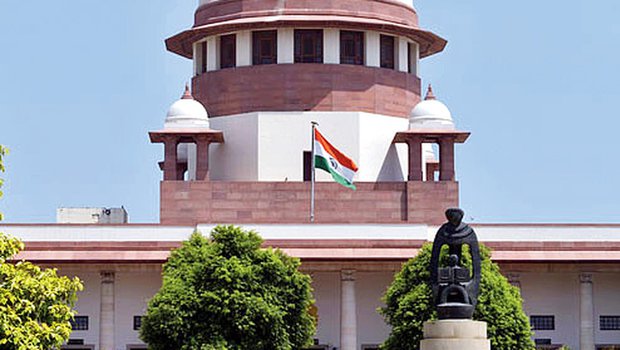Janjivan Bureau / New Delhi : The Supreme Court on Friday agreed to hear next week a PIL filed by noted journalists N Ram, Sashi Kumar, and others for a court-monitored SIT probe into the Pegasus scandal.
A Bench led by CJI NV Ramana said the petition would be heard next week after senior Congress leaders and senior advocates Kapil Sibal and AM Singhvi mentioned it before it.
Sibal said it’s urgent due to its ramifications on national security. He said Pegasus had huge ramifications for civil liberties. Opposition leaders, journalists and members of judiciary are being snooped on; it is hitting headlines not just in India but internationally as well, he said.
Singhvi complained that the top court’s Registry was not listing it for urgent mentioning.
“We will hear it next week,” CJI Ramana responded.
Ram and others had moved the Supreme Court on Tuesday seeking a judge-led independent investigation into alleged snooping on eminent citizens, politicians and journalists by using Israeli spyware Pegasus.
Terming the allegations as an attempt by government agencies to muzzle free speech and dissent in India, the petitioners sought a direction to the Centre to disclose if the government or any of its agencies obtained licence for Pegasus spyware and used it, either directly or indirectly, to conduct surveillance in any manner.
The petition – expected to be taken up later this week – demanded an independent probe by a sitting or retired judge of the Supreme Court into the alleged hacking of phones.
“The targeted surveillance using military-grade spyware is an unacceptable violation of the right to privacy which has been held to be a fundamental right under Articles 14 (equality before the law), 19 (freedom of speech and expression) and 21 (protection of life and personal liberty) by the Supreme Court,” it submitted.
The hacking of phones belonging to journalists, doctors, lawyers, activists, ministers and opposition politicians “seriously compromises” the effective exercise of the fundamental right to free speech and expression under Article 19(1)(a) of the Constitution, the petitioners said, adding that it had an obvious “chilling effect” on expression by threatening invasion into the most core and private aspects of a person’s life.
“The attack prima facie constitutes an act of cyber-terrorism that has several grave political and security ramifications, especially considering that the devices of government ministers, senior political figures and constitutional functionaries which may contain sensitive information have been targeted,” they said.
Investigations involving several leading publications around the world revealed that more than 142 Indians, including journalists, lawyers, ministers, opposition politicians, and activists, have been identified as potential targets for surveillance using Pegasus software, the petitioners alleged.
Forensic analysis by the Security Lab of Amnesty International of several mobile phones, belonging to people targeted for surveillance, has confirmed Pegasus-induced security breaches, the petitioners submitted.
They said the hacking of phones using the Pegasus spyware constituted a criminal offence punishable under Sections 66 (computer related offences), 66B (punishment for dishonestly receiving stolen computer resource or communication device), 66E (punishment for violation of privacy) and 66F (punishment for cyber terrorism) of the IT Act, punishable with imprisonment and/or fine.

















